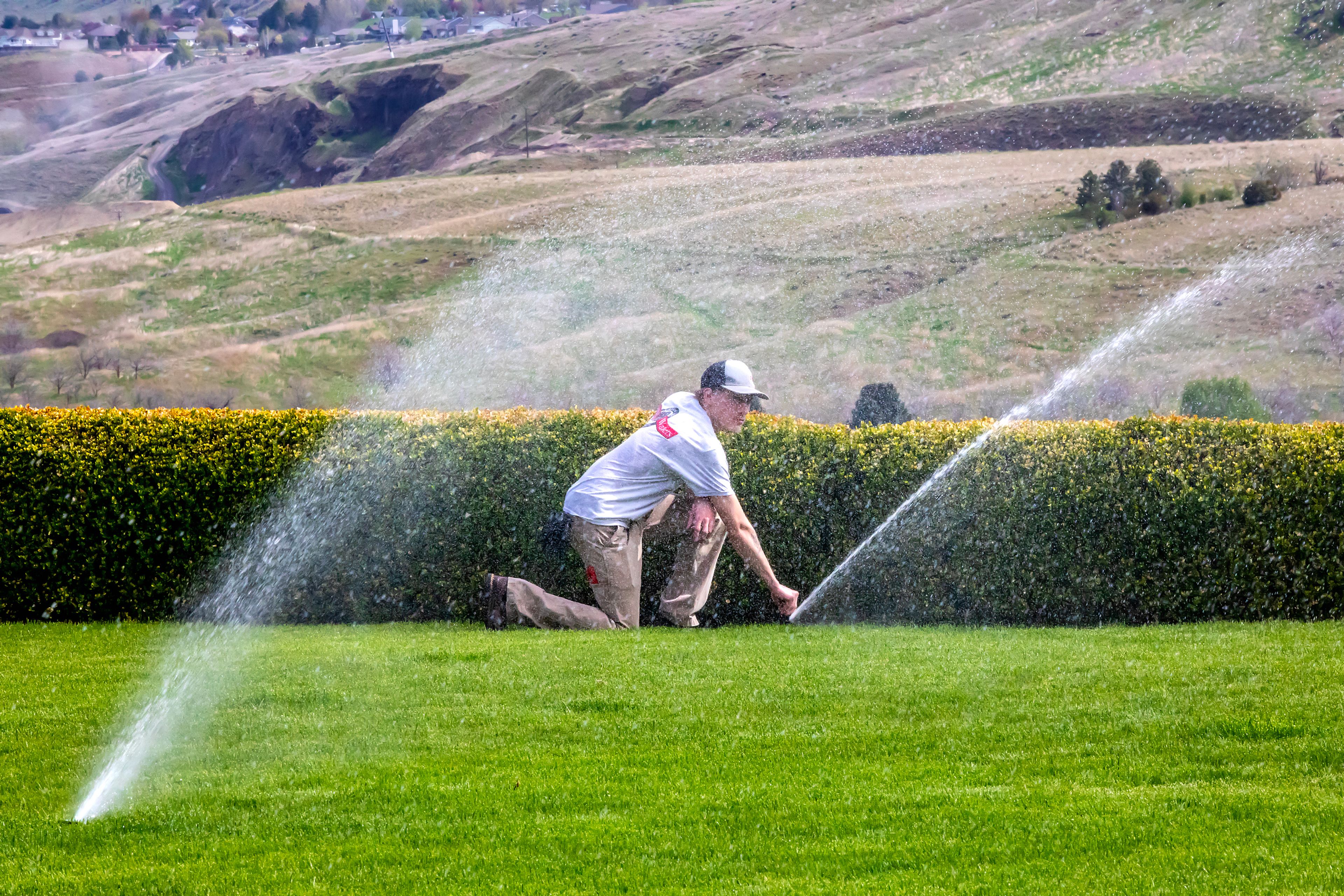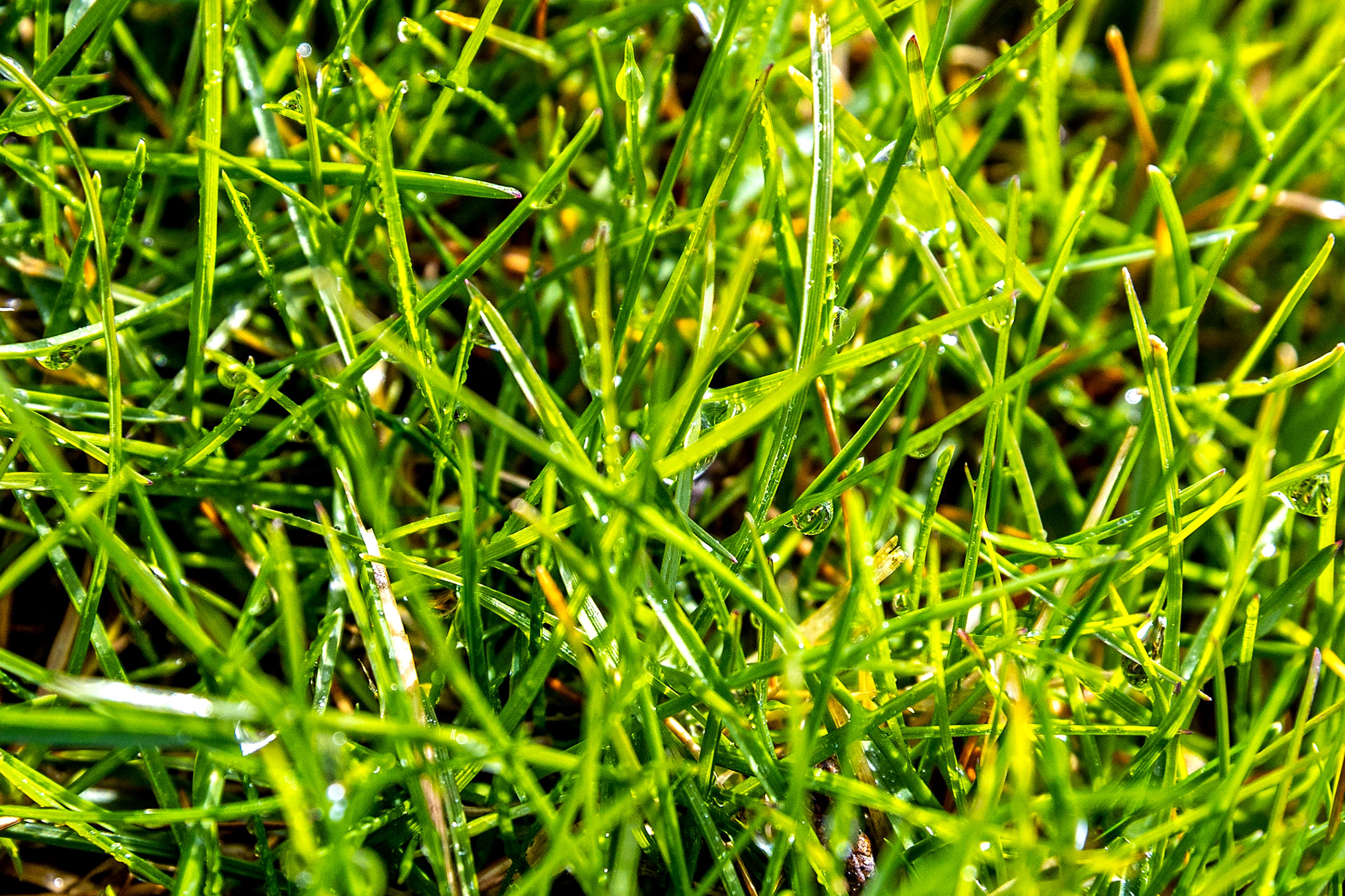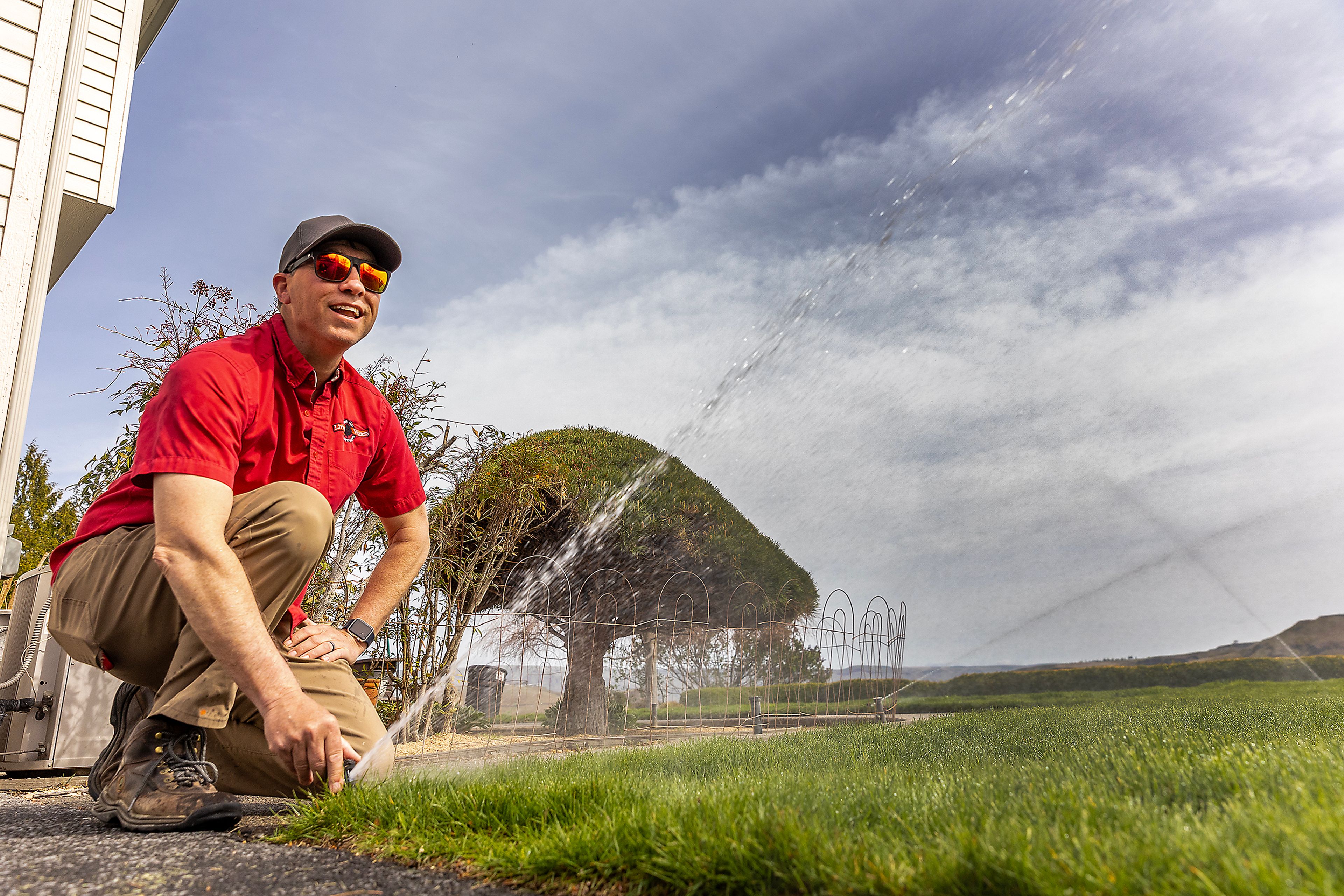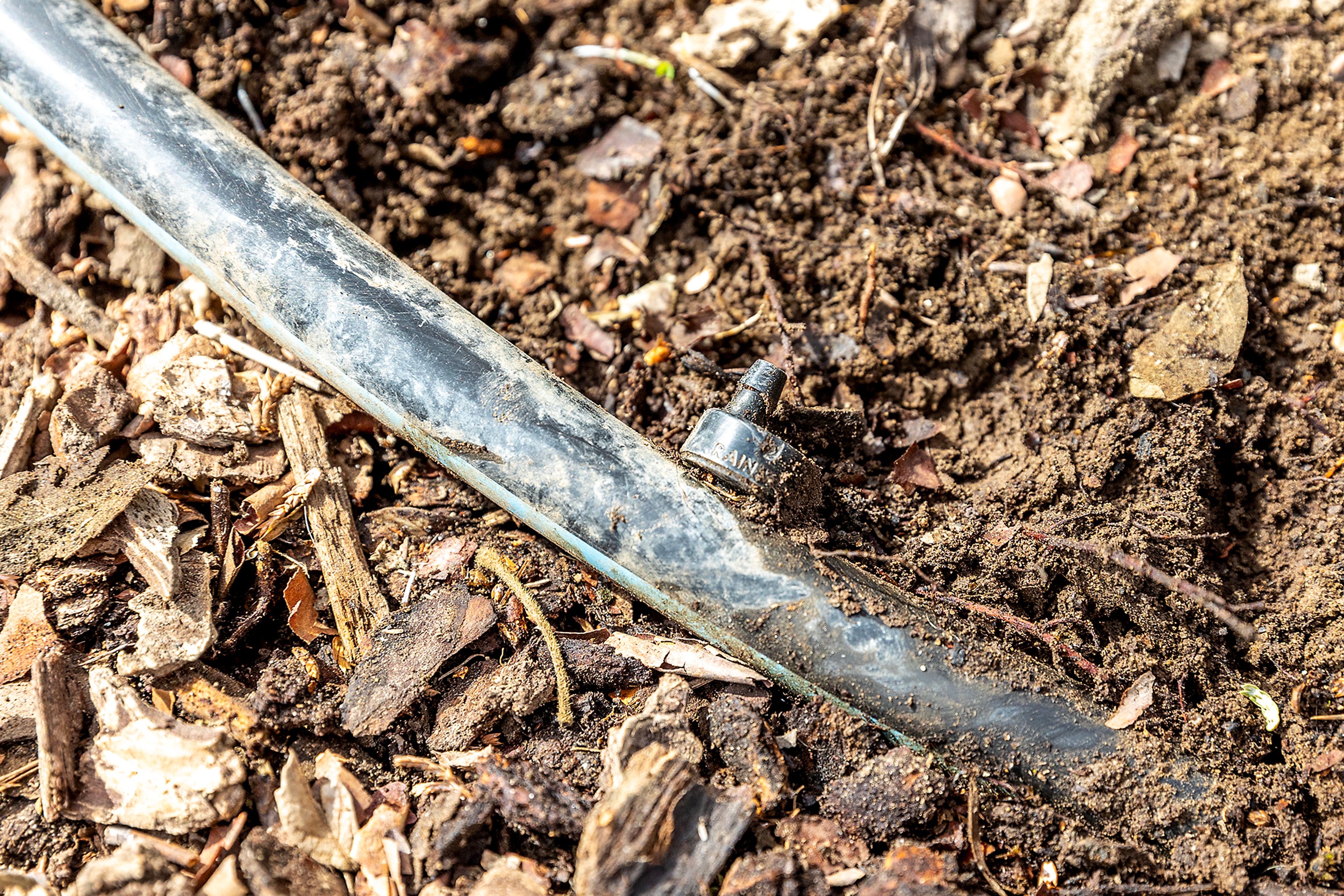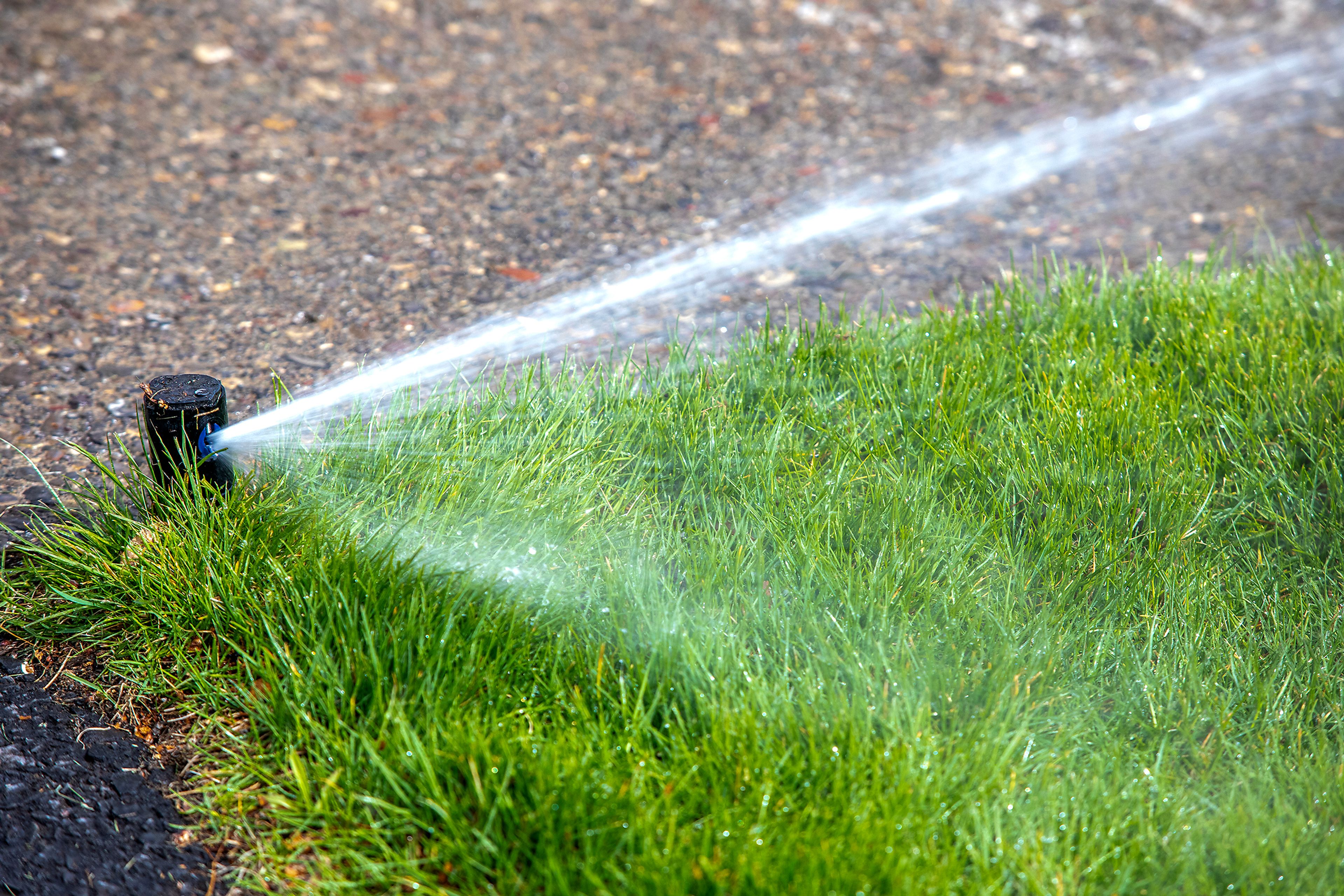The fate of lawns across much of Lewiston likely hangs on how long the city’s water restrictions remain in place.
But there is more to it than just that. The health of a particular lawn will play a role in how well it tolerates drought. How quickly temperatures climb from springlike to fry-an-egg-on-the-sidewalk hot will be a factor as well.
Which is to say, it varies, but lovers of vibrant green turf will likely have to live with an expanse of parched grass the color of oatmeal.
“It’s all based on temperatures and how good a shape your lawn is in,” said Brian McKarcher, owner of Living Waters and Landscape, which is based in Clarkston. “Some lawns are in horrible shape, they are just junkers and they are going to go real quick. More healthy lawns will fare better but if this goes into June or July, that will be a real game changer. That would be a really hard deal for a lawn.”
Starting Tuesday, many but not all of Lewiston’s neighborhoods will fall under lawn and yard watering restrictions. In general, hand watering will be allowed but the use of sprinklers will not. The restrictions are likely to last into July if not beyond. (See accompanying story.)
Lawns, which have shallow roots, will be more vulnerable to the loss of sprinkler irrigation than other vegetation. McKarcher has some tips to give your lawn a fighting chance. First and foremost, give it a good drink before Tuesday and, if you haven’t, lay down a high-quality, slow-release fertilizer. Then be vigilant against intruders.
“You want to keep the weeds in your lawn under control,” he said. “The fact that we don’t have water is going to feed the weeds. They are opportunistic.”
Proud yard geeks who have already fertilized might do well to keep an eye on the weather around the time a second application is called for. Lawns treated with fertilizer and not followed by a watering can burn. But if you trust your weather person and they tell you rain is a sure thing, McKarcher said go for a second application.
“If you are really into your lawn, that would be your game – keep the weeds down and fertilize if we have a water event.”
Corky Fazio, grounds maintenance supervisor for Lewiston Parks and Recreation, advises people to raise the elevation of their lawn mowers.
“If you raise it up, it should use less water. Too many people try to cut their lawns too tight,” he said.
Both Fazio and McKarcher said there are wetting agent products that can be applied that help lawns retain water.
“A lot of golf courses use this kind of material. It just helps with the stress,” Fazio said.
McKarcher said without watering, lawns will start to go dormant in May or June. They will turn brown but the roots will be alive. If restrictions last into July, as the city predicts, it will be worse.
“A really healthy law will fare pretty well for a month or so, it will lose its green and won’t look so good but will still be alive,” he said. “If it doesn’t get watered and revived in time, you are going to lose it. The roots will die.”
———
Even with all the precautions and extra measures, lawns will be stressed. So will their caretakers — be they large public institutions or private property owners. That includes people like Jo Dryden. Three weeks ago, she invested $6,000 in the yard of her Normal Hill home. Landscapers installed new grass, plants and other landscaping.
“That’s a lot of money to spend,” she said. “I wouldn’t have done it if I had any idea. They should have let people know.”
Dryden will attempt to keep everything alive via hand watering.
“I’m worried about the grass and plants,” she said. “I should be able to do it but I don’t know if I will be able to do it.”
She’s not the only one worried. Lewis-Clark State College and the Lewiston School District are both concerned they may lose important playing fields. For the college, it’s Harris Field and the NAIA World Series that starts May 25 and will last about a week. The school district is worried about its football turf, Bengal Field, that will see game action in early September and practice before that.
“Our most critical property is our football field. I don’t want to lose it. Obviously next fall, I need a field to play on,” said Lance Hansen, superintendent of the school district.
Gary Picone, retired athletic director for LCSC who still helps with the World Series, said keeping the infield and outfield nice and green is not just a matter of aesthetics.
“The quality of the grass determines the quality of the play. It matters. The condition of the surface matters.”
Both the college and the school district are in communication with the city with the hope they can find a way to keep those surfaces alive. Dustin Johnson, public works director for the city, is working with them and also fielding calls from others concerned about their property, such as Bryden Canyon Golf Course, where tee boxes and greens will dry up without irrigation, and plant retailers like Home Depot, who have inventory at stake.
While he said there is not a way to grant exemptions to the restrictions, the city is working with entities who have voiced special concerns.
“We are actively working with LCSC and the school district. Both have been understanding. We understand their situation and we will do what we can. We are asking what can be saved.”
Turf is not the only thirsty vegetation. Gardens, both flower and vegetable, as well as landscaping shrubs, also need to be watered in the hot summer months. Much of that can be done by hand. But those still planting their gardens may want to consider the growing trend of water-wise plants and xeriscaping.
The strategies preach the use of drought-tolerant, often native, plants. Danielle Evans, a horticulture associate with the University of Idaho Nez Perce County Extension Office in Lewiston, said the office can help folks who are interested.
“We have some really good resources showing people what is available and what they can do to offset the need to water all the time.”
That includes a low-water garden at its office on Idaho Street that people can walk through.
Kate Patterson of Patt’s Garden Center said ornamental grasses, day lilies, yucca, Russian sage, coreopsis and lavender are all plants that can get by on less water. People can also help their green friends in the way they give them water.
“If they focus on watering deeply, watering a lot in either the early morning or evening a few times a week, that will help things make it through the dry spells.”
Plants native to the region are generally drought tolerant, depending on the habitat they like. Those that grow in open areas far from streams and wetlands tend to do well with low water.
“If you get the right plants, they can be very low-water-use or no additional water-use,” said Kathy Hutton, manager of Plants of the Wild at Tekoa. “The other benefit is with all of the pollinator problems we are having, they will attract the pollinators and give them food and nectar.”
The wholesale nursery specializes in plants native to the Pacific Northwest and has many native the Palouse region. Hutton recommends its Thorn Creek line for people in the Lewiston-Clarkston Valley looking to plant drought-tolerant species. Its website, plantsofthewild.com, has detailed descriptions of all of the plants it sells.
“A lot of them actually don’t like water and if you water too much, they will get root rot,” she said.
The nursery doesn’t have a retail shop but people can order plants and pick them up at Fidler’s Ridge Nursery in Moscow or order seeds online.
Barker may be contacted at ebarker@lmtribune.com or at (208) 848-2273. Follow him on Twitter @ezebarker.

